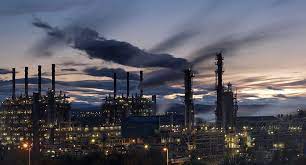Amidst the demand for fuel going higher, plans were in full swing in raising Asia’s third-largest economy’s share of natural gas from the current 6% to 15 % percent by 2030. Home to world’s most polluted 14 cities out of 15, as per a WHO study, natural gas is a perfect alternate for India to cleanse its dirty kitchens and curb pollution. However, India’s plans of making a full-fledged gas trading hub have not kickstarted as it should have. Lack of pipeline connectivity is one of the reasons that stands as a hindrance.
Natural Gas
Natural gas is a fossil fuel that can be used to cook, heat, generate electricity, and to fuel vehicles. They are formed when decomposed plants and animals lying under the earth’s surface are exposed to extreme heat and pressure for several years. It is flammable, colorless and odorless. Discovered as early as about 500 B.C by the Chinese, Britain was the first nation to commercialize natural gas. Being a vital component of the world’s energy supply, natural gas or ng is also a traded NG commodity having plenty of commercial and industrial applications.
Advantages
Environmental Cleanliness: Cleanest and greener among the fossil fuels, natural gas emits fewer pollutants into the atmosphere. This makes the air we breathe cleaner. Burning natural gas releases less than 1% of sulfur dioxide when compared to oil or coal. Containing a higher amount of methane, natural gas is not corrosive. The amount of carbon dioxide it releases is only half the amount of coal and 32% less compared to oil. Increased gas usage will help the country meet the INDC (Intended Nationally Determined Contribution) commitments under the Paris agreement.
Inexpensive: Natural gas is not as expensive as other burning fuels. It is 60% cheaper than gasoline, 45% cheaper to diesel, 40% cheaper when compared to LPG (liquified petroleum gas). If you replace just 10% of liquid fuel into natural gas, India’s import bill will come down by millions.
Convenience: It is convenient to use natural gas for cooking and electric purposes. It is connected directly to the consumer’s house using pipelines, hence no refilling or the hassles of delivering to the consumer.
Found in Abundance: Natural gas is easily found and is abundant in nature. As per experts, it has more reserves than crude oil or any other products.
Safe: Its low density makes it lighter than air. In case of a leakage, it dissipates into the air. This makes it safer when compared to LPG cylinders where there is always a possibility of leakage.
Efficient: Compared to propane gas, it releases more energy when it burns and is thus more efficient.
Access: Encouraging natural gas will help India’s growing population’s access to electricity and cleaner cooking fuel. As per the 2011 census, 396 million do not have access to electricity and 592 million do not have access to clean cooking fuel.
Though natural gas has certain disadvantages such as the fear of depleting reserves and difficulty in storing as it is volume is four times that of petrol, it is still the most available and cheap fossil fuel in the world. This makes its advantages outnumber its disadvantages. So, encouraging the usage of natural gas will reap rewards for India.

